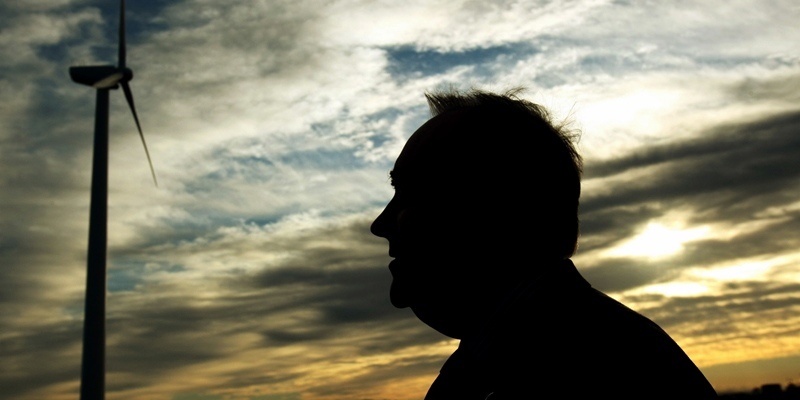The key role to be played by Tayside and Fife in developing Scotland’s renewable energy was at the heart of the SNP’s election manifesto.
First Minister Alex Salmond reaffirmed his commitment to renewable energy by pledging that all of Scotland’s electricity will come from renewable sources by the end of the decade.
This pledge could be key for areas such as Dundee and Methil that are hoping to capitalise on the demand for energy from sources such as offshore wind.
The manifesto, Re-elect A Scottish Government Working For Scotland, claims developing Scotland’s low-carbon economy will create around 130,000 jobs.
Mr Salmond also announced that, if re-elected, the nationalists will freeze council tax for the full five years of the next parliament and that there will be a consultation on replacing it with a “fairer system.”
The SNP’s other plans include an independence referendum, protecting the NHS and securing more “job-creating” powers.
Mr Salmond said the party will oppose university tuition fees, maintain police numbers and fight to defend RAF Leuchars and RAF Lossiemouth.
He said free university education would be paid for through a “management fee” for EU students, efficiency savings at universities, increased commercial activity and philanthropy.
Mr Salmond said, “We are totally, absolutely, 100% committed to free education in Scotland, no tuition fees and for funding our universities to be world class.”
He denied the independence referendum, which failed to win enough support in the last parliament, is a “luxury” that cannot be afforded and promised it would be held within the lifetime of the next parliament.’A people’s manifesto’Mr Salmond said, “We intend to freeze the council tax for the next five years of the Scottish Parliament.
“Overall savings for the nine years of the tax freeze for an average family in Scotland will amount to more than £1200.”
It is estimated that freezing council tax for so long will cost about £420 million by 2014-15.
The SNP’s plan for minimum alcohol pricing is resurrected, despite also not winning enough support from opposition MSPs during the last parliament.
On education, the party said it will “look first to maintain the recent improvement” in reducing class sizes before going on to reduce them further.
The SNP also wants to secure additional powers for parliament, such as control of corporation tax and responsibility for Crown Estate.
The manifesto launch at the Royal Academy of Music and Drama in Glasgow was preceded by a video of celebrity endorsements for the SNP, including one from Mark Millar, the Glasgow comic-book writer behind Kick-Ass, which became a film starring Nicolas Cage.
Taking the stage, Mr Salmond said, “We’ll do our best to kick ass for Scotland, for Mark Millar.
“This is in every sense a people’s manifesto. It’s also a manifesto for all Scotland.”
He added, “We have an enormous advantage.
“We can point to a track record of achievement.”‘Everything isn’t fine’Scottish Conservative deputy leader Murdo Fraser disagreed and said the SNP had failed to deliver on many of its 2007 election promises.
He said, “The SNP’s manifesto must be checked against delivery.
“In 2007, the SNP promised among other things to dump student debt, cut class sizes for P1-P3 pupils to 18 or fewer, give all first-time buyers a £2000 grant, give every child in every school two hours of PE a week, introduce a local income tax, hold an independence referendum and end automatic early release.
“On none of these promises have they come even close.”
Scottish Labour leader Iain Gray said, “They are clearly rattled because despite a last-minute re-write, the SNP have nothing new to say.
“This is an ‘everything is fine manifesto’, but everything isn’t fine.”
He added, “Ten thousand people joined the dole queue in the last year, families are feeling the squeeze, and youth unemployment is in crisis.
“This smacks of complacency.”
Labour also described the SNP’s renewable energy target as “unrealistic.”
However Dr Richard Dixon, director of WWF Scotland said, “The SNP’s new 2020 renewable electricity target is a vital step in moving towards a low-carbon economy.”
